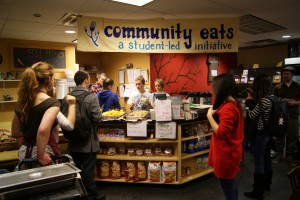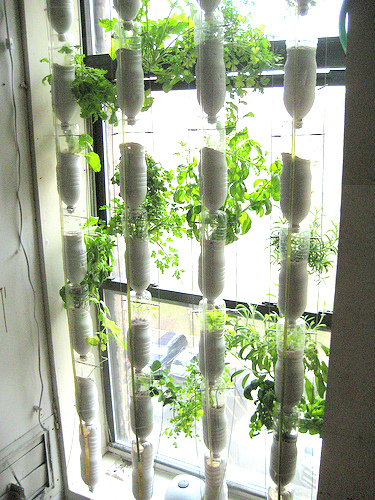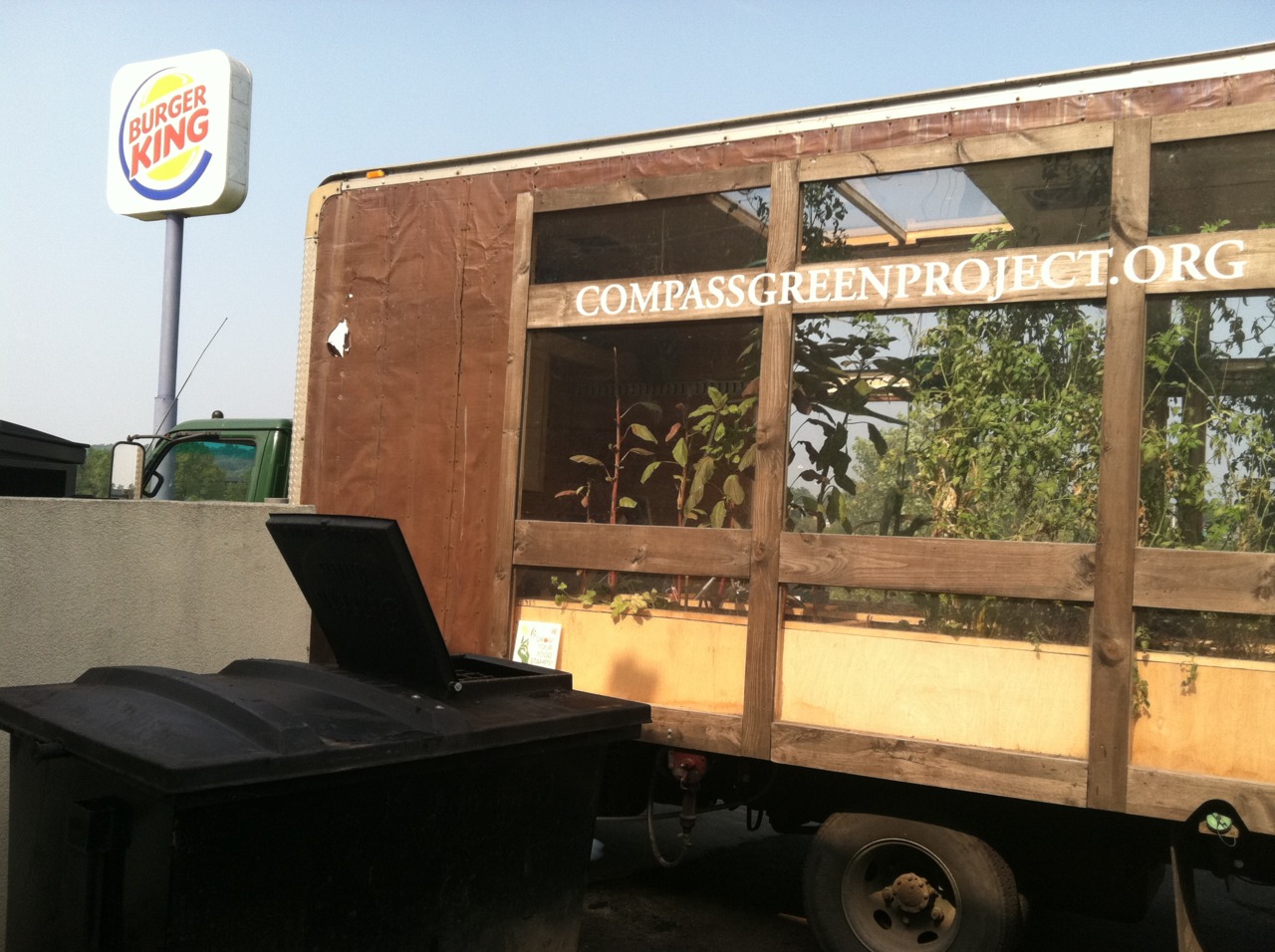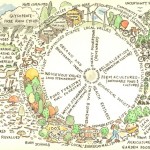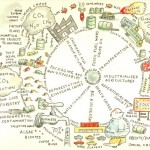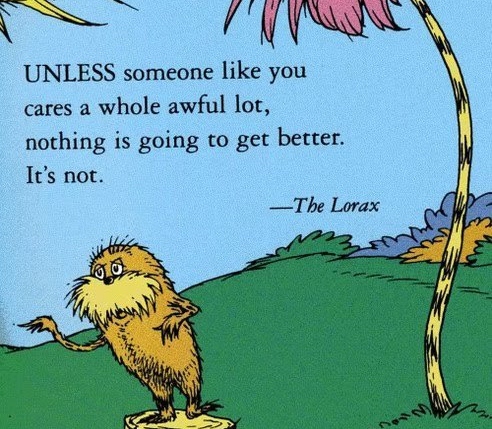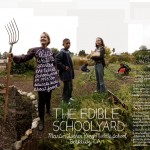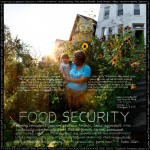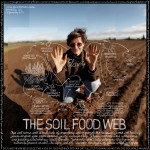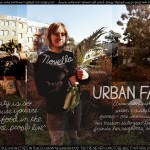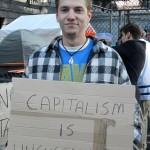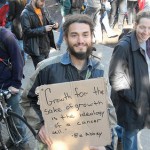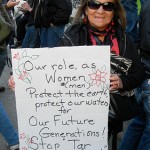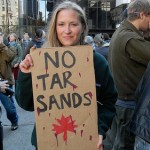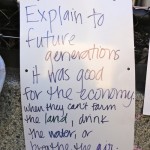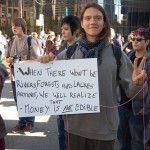This summer (before I worked at FarmWonders), I took a course at Simon Fraser called the Undergraduate Semester in Dialogue. The Dialogue program is meant to engage students in an alternative form of education that’s based on learning through discussions and thinking about important public issues in a critical way. The class is partially about content and partially about process, which is a very holistic way to approach education.
The topic of the course I took was Sustainable Food Systems (of course). We got to meet and discuss food systems issues with many important people working with food in the Metro Van Region, such as Peter Ladner, James O’Neil, Brent Mansfield, Art Bomke, Sean Dorry, Helen Spiegelman, Arzeena Hamir, the list goes on and on. We even got to stay on Michael Ableman’s farm on Salt Spring Island (he is one of the guys heading SOLEfood Farm). We would host “dialogues” with these people or go visit their places and have in depth talks with them about the food system and their role in it. It was such a great opportunity to actually be able to speak with these people instead of just listening to them lecture, which is what it would be like in a normal class.
The content of the course was amazing, I learned so much about food systems and what’s happening in Vancouver around food. But learning about the process of dialogue was amazing as well. We learned about what it is like to work in a group, how leadership can be manifested in many different ways, how to host a balanced discussion, a bit about being in the professional world, and so much more. Being in that class changed the way I interact with people and how I see my education. It taught me that the work we do is important, but they way we do that work can be just as important as what we do.
Here are some pictures from our course. I will write another post that is more about the coursework we did soon.
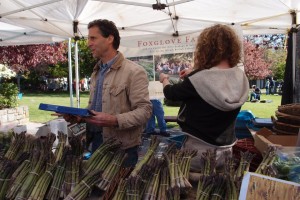
Me, working with Michael Abelman at his farm (Foxglove Farm) stand on Salt Spring
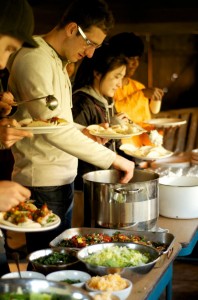
We made amazing potlucks and ate together almost everyday during class
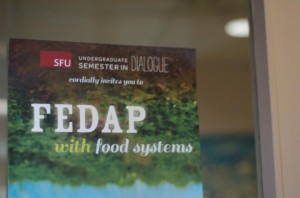
The poster for the event we held at the end of our class
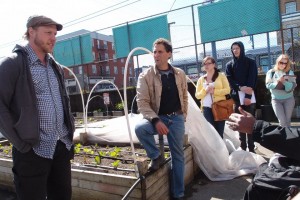
Michael Abelman and Sean Dorry at SOLEfood
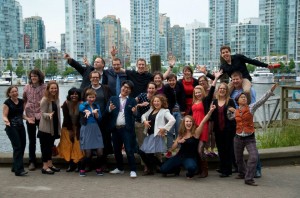
Everyone after the event
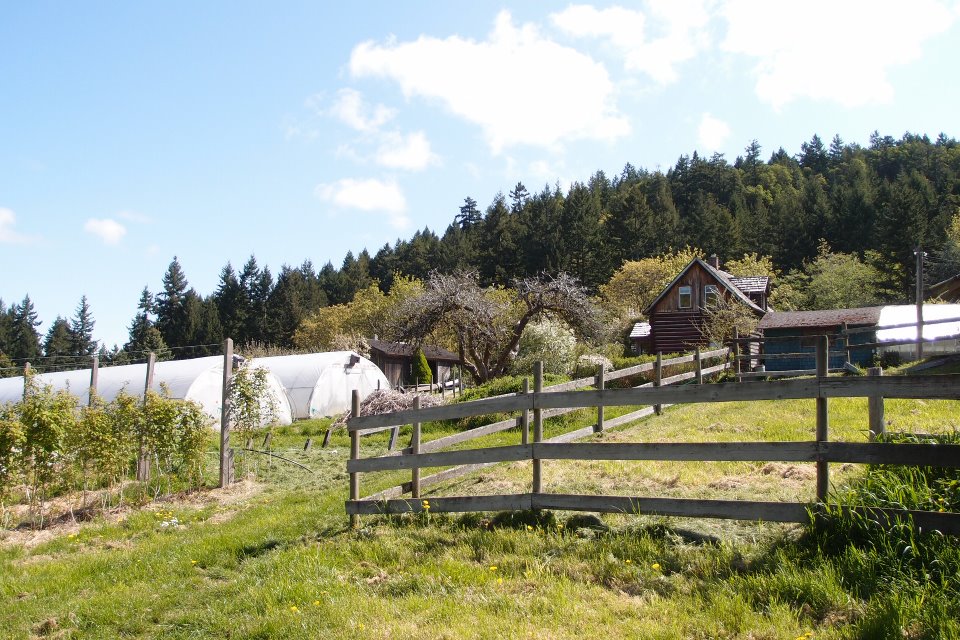
Foxglove Farm

We always sat in circles for our discussions. Always.

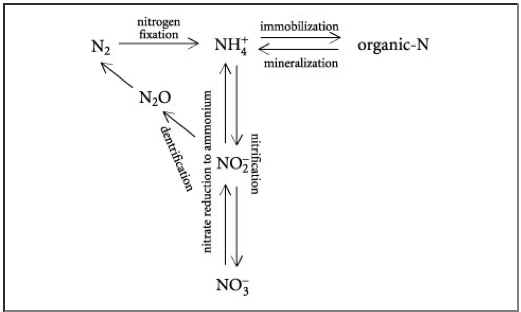
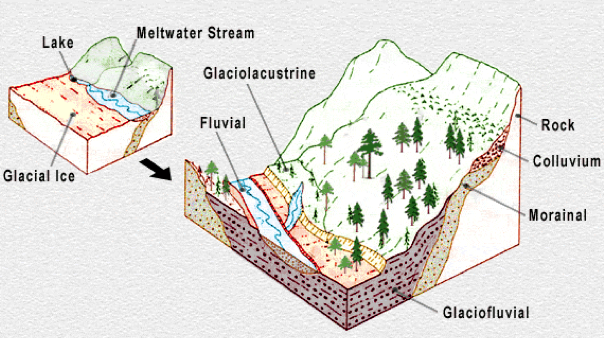
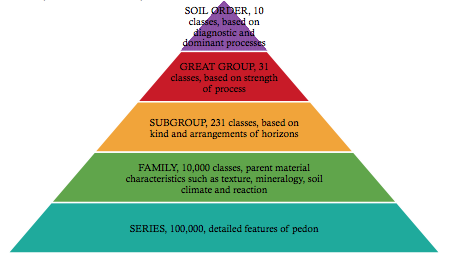


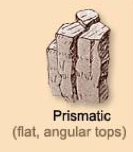







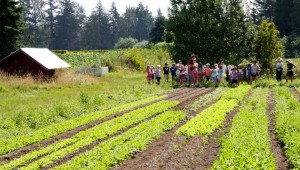
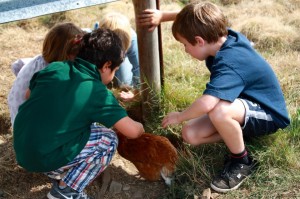
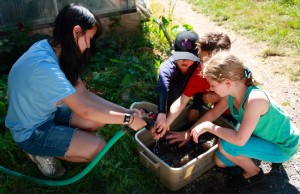
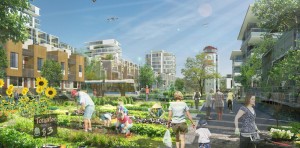
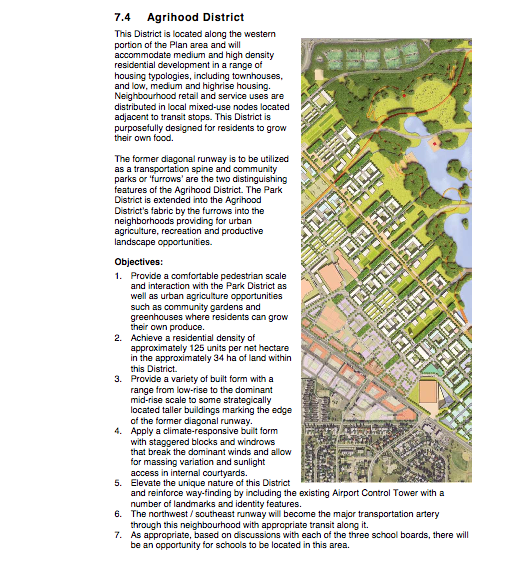
 The first one was for APBI 260. My group and I looked into the feasibility of aquaponics at the UBC Farm. It was a very general and broad topic, we basically just learned about how aquaponics works and tried to see if it would be a good fit at the Farm. We think they should build a system, even though it would cost a bit of money to start up, because they could supplement their field production of greens with greens from the aquaponics system and because it would be a great interdisciplinary educational tool. Here is the link to our blog:
The first one was for APBI 260. My group and I looked into the feasibility of aquaponics at the UBC Farm. It was a very general and broad topic, we basically just learned about how aquaponics works and tried to see if it would be a good fit at the Farm. We think they should build a system, even though it would cost a bit of money to start up, because they could supplement their field production of greens with greens from the aquaponics system and because it would be a great interdisciplinary educational tool. Here is the link to our blog: 